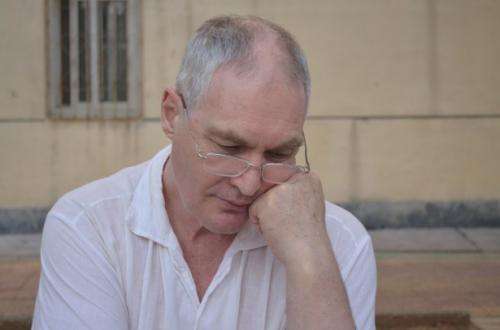Working longer may lead to a longer life, new research shows

Working past age 65 could lead to longer life, while retiring early may be a risk factor for dying earlier, a new study from Oregon State University indicates.
The researchers found that healthy adults who retired one year past age 65 had an 11 percent lower risk of death from all causes, even when taking into account demographic, lifestyle and health issues. Adults who described themselves as unhealthy were also likely to live longer if they kept working, the findings showed, which indicates that factors beyond health may affect post-retirement mortality.
"It may not apply to everybody, but we think work brings people a lot of economic and social benefits that could impact the length of their lives," said Chenkai Wu, the lead author of the study. He conducted the research as part of his master's thesis at OSU, where he is now a doctoral student in the College of Public Health and Human Sciences.
The findings were published recently in the Journal of Epidemiology and Community Health. Co-authors include Associate Professor Robert Stawski and Assistant Professor Michelle Odden of OSU and Gwenith Fisher of Colorado State University. The research was supported by a grant from the National Institute on Aging.
The research was the basis for Wu's master's thesis in human development and family science; he's now pursuing a doctorate in epidemiology.
Wu took an interest in the effects of retirement on health in part because of China's mandatory laws, which are often debated. Retirement age is also an issue for debate elsewhere around the world, including the United States, he said.
"Most research in this area has focused on the economic impacts of delaying retirement. I thought it might be good to look at the health impacts," Wu said. "People in the U.S. have more flexibility about when they retire compared to other countries, so it made sense to look at data from the U.S."
Wu examined data collected from 1992 through 2010 through the Healthy Retirement Study, a long-term study of U.S. adults led by the University of Michigan and funded by the National Institute on Aging. Of the more than 12,000 initial participants in the study, Wu narrowed his focus to 2,956 people who began the study in 1992 and had retired by the end of the study period in 2010.
Poor health is one reason people retire early and also can lead to earlier death, so researchers wanted to find a way to mitigate a potential bias in that regard.
To do so, they divided the group into unhealthy retirees, or those who indicated that health was a factor in their decision to retire - and healthy retirees, who indicated health was not a factor. About two-thirds of the group fell into the healthy category, while a third were in the unhealthy category.
During the study period, about 12 percent of the healthy and 25.6 percent of the unhealthy retirees died. Healthy retirees who worked a year longer had an 11 percent lower risk of mortality, while unhealthy retirees who worked a year longer had a 9 percent lower mortality risk. Working a year longer had a positive impact on the study participants' mortality rate regardless of their health status.
"The healthy group is generally more advantaged in terms of education, wealth, health behaviors and lifestyle, but taking all of those issues into account, the pattern still remained," said Stawski, senior author of the paper. "The findings seem to indicate that people who remain active and engaged gain a benefit from that."
Additional research is needed to better understand the links between work and health, the researchers said. As people get older their physical health and cognitive function are likely to decline, which could affect both their ability to work and their longevity.
"This is just the tip of the iceberg," Stawski said. "We see the relationship between work and longevity, but we don't know everything about people's lives, health and well-being after retirement that could be influencing their longevity."
More information: Chenkai Wu et al, Association of retirement age with mortality: a population-based longitudinal study among older adults in the USA, Journal of Epidemiology and Community Health (2016). DOI: 10.1136/jech-2015-207097

















